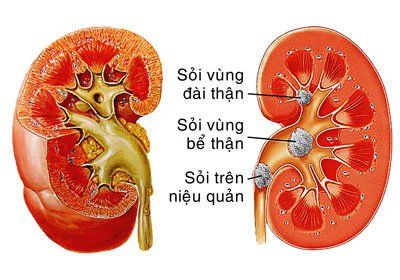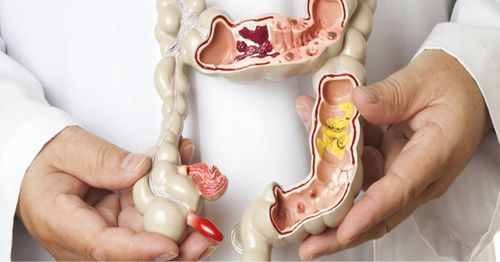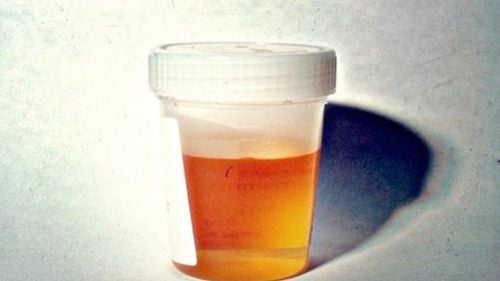This is an automatically translated article.
Posted by Master, Doctor Hoang Tho - Doctor of General Surgery - Vinmec Times City International HospitalAccording to studies, the rate of patients with recurrent urinary stones after 1 year of treatment accounts for about 7%, recurrence within 10 years is up to 50%. Therefore, the prevention of urinary stones is considered a very important issue. Here are some basic regimens that patients can apply to prevent disease and prevent recurrence of urinary stones.
1. Drink enough water
Every day must drink at least 2L of water (about 10 cups) and in summer days you sweat a lot, drink enough water to increase urine output (1 day the body excretes more than 2L of urine). Especially, after eating for 2~4 hours or doing heavy activities, not drinking water will make the urine concentrated. Therefore, in the morning, every 2 hours, you drink 2 cups of water with a glass to help the body maintain a sufficient amount of urine.2. Limit salt intake
Eating too much salt will cause calcium to be excreted a lot and form calcium crystals in the urine. Therefore, you should eat light, limit salty foods. When processing food, it is necessary to reduce salt ingredients (salt, soy sauce, soybeans, chili sauce, sauces)
Some foods need to be limited:

Salted foods and dried seafood: kinds of kimchi, pickles, fish sauce, dried fish. Processed foods: Smoked meats, ham, sausages, cheeses, canned tuna or mackerel, butter, margarine Instant foods: Pizza, instant noodles, savory sandwiches or cakes salty.
3. Eat enough protein
Eating too much protein will increase calcium, oxalic acid, uric acid will cause acidification of urine and easily lead to urinary stones. Accordingly, only the recommended amount of protein should be consumed (1kg of body weight is equivalent to 1~1.2g of protein)
For example, a body weight of 60~70kg, with the recommended amount of protein per day is 60~80g, each meal can choose one of the following foods: 80g meat or 100g fish (2 small pieces), 2 eggs, 160g tofu, (1/3 corner).
4. Do not limit foods containing calcium
In the past, people said that limiting foods containing calcium could prevent stones. However, according to recent research results, people who eat less calcium-containing foods have more urinary stones. In addition, patients with urolithiasis who excessively limit their intake of calcium-containing foods are at increased risk of developing osteoporosis. Therefore, for patients with bone density within the normal range and the amount of calcium excreted in the urine is more than normal, it is recommended to moderate calcium-containing foods.5. Choose foods rich in fiber
Foods rich in fiber help limit calcium absorption. When fiber combines with calcium, it helps to reduce calcium excretion through the kidneys by increasing calcium excretion in the stool. Therefore, instead of eating white rice, you should eat mixed rice with cereals, raw vegetables, seaweed and should eat fresh fruit rather than just juice.
6. Combine a healthy diet with a reasonable exercise regimen
Citric acid has the effect of inhibiting the formation of urinary stones. Therefore, you should use foods that contain a lot of citric acid such as orange juice.Patients with a history of urinary stones in the past are often tested for stone composition to limit foods that are believed to be the main causes of stone formation.
6.1. In case of calcium hydroxide stones, it is necessary to limit the amount of Hydroxide to less than 50mg/day.
Hydroxide content per 100g of food (little: less than 2mg /Moderate: 2~10mg / lot: over 10mg)
6.2. In case of urinary stones caused by calcium phosphate The following foods high in calcium phosphate should be avoided.
6.3. The case of cysteine stones Dieting with a low-protein diet is also very difficult to effectively prevent stones because most foods contain a certain amount of cysteine. In the case of highly acidic urine, it will help increase the solubility of cysteine, so it is necessary to reduce the amount of alkaline foods to effectively prevent cysteine stones.
6.4. Cases of Uric Acid Stones We recommend that patients with a history of urolithiasis limit foods high in purines - uric acid is an intermediate in purine metabolism, and instead eat foods with high concentrations of purines. alkaline food.
Normally purine content in 100g of food (Low: 0~ less than 15mg, medium: 50~under 150mg; high: 150~800mg)
To help patients screen and detect urinary stones early, so that they can have timely treatment to achieve optimal results, Vinmec International Hospital now has a Urology Screening Package - Stones. with many utilities, including:
Be examined and consulted by urologists. Perform diagnostic X-ray and ultrasound services. Early detection of urinary diseases, stones and timely treatment advice When registering for the package of examination - screening of urology - stones, customers will be able to perform tests and diagnostic imaging such as: General analysis peripheral blood cells (by laser counter); Quantification of Urea; Total urinalysis (By automatic machine); Quantification of Creatinine; Abdominal ultrasound (general); X-ray of the urinary system was not prepared...
Please dial HOTLINE for more information or register for an appointment HERE. Download MyVinmec app to make appointments faster and to manage your bookings easily.














